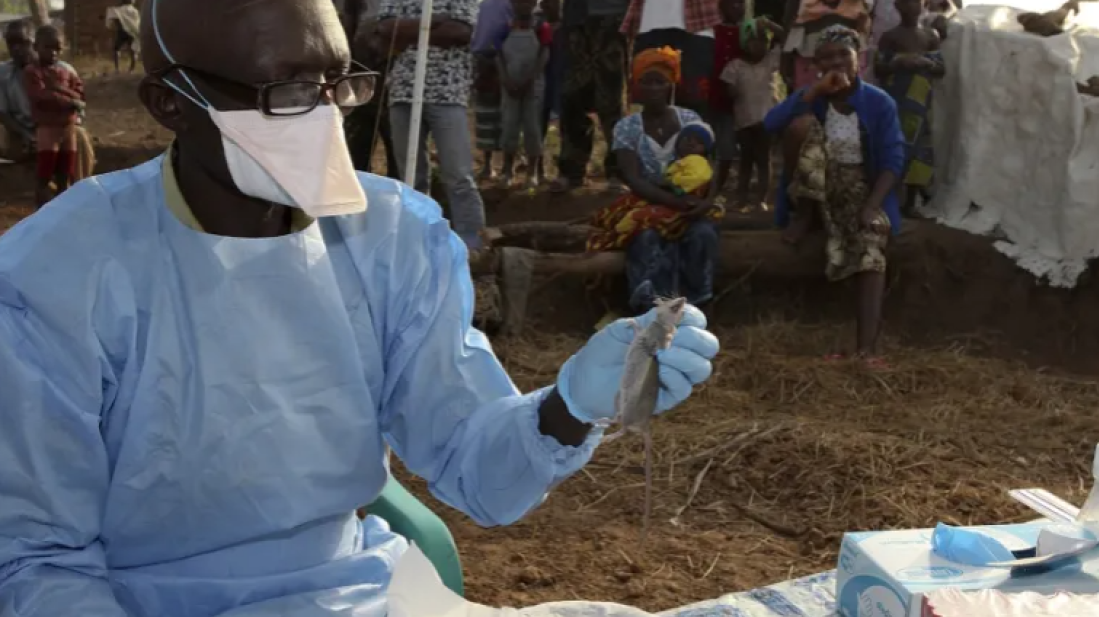In photos: Day 6 highlights from Milano Cortina 2026 Winter Olympics
Day 6 of the Milano Cortina 2026 Winter Olympics brought fans and photographers unforgettable moments of athleticism, determination and sheer joy. Fro...

The Nigeria Centre for Disease Control (NCDC) has confirmed 800 Lassa fever cases and 151 deaths so far in 2025, raising concerns over a worsening epidemic across the country.
The latest data shows a rise in the case fatality rate (CFR) to 18.9%, up from 17.3% during the same period last year. According to the NCDC’s epidemiological Week 27 update, 11 new confirmed cases were reported, up from nine the previous week. These cases were recorded across six states: Ondo, Edo, Kaduna, Ebonyi, Lagos, and Enugu, with three deaths reported during the week.
The outbreak continues to spread, affecting 21 states across 104 Local Government Areas. However, five states remain the main hotspots, accounting for 90% of all confirmed infections: Ondo, Bauchi, Edo, Taraba, and Ebonyi. Ondo leads with 32% of cases, followed by Bauchi at 23%, Edo at 17%, Taraba at 15%, and Ebonyi at 3%.
The affected population ranges in age from one to 96 years, with the majority aged between 21 and 30. There is a slight gender imbalance, with males outnumbering females at a ratio of 1:0.8.
While the overall number of suspected and confirmed cases has slightly decreased compared to 2024, the rising fatality rate remains a key concern for health authorities. Notably, no new infections among healthcare workers were reported in the latest week.
Lassa fever, caused by the Lassa virus, is transmitted to humans primarily through contact with the urine or droppings of infected rodents. It can also spread from person to person and causes severe hemorrhagic fever in some cases.
The disease was first identified in Nigeria’s northeastern Borno State in 1969 and has since been reported in several West African countries, including Mali, Togo, Ghana, Liberia, and Sierra Leone.
The Nigerian government declared a state of emergency for Lassa fever in January 2019, and the National Lassa Fever Technical Working Group continues to coordinate response efforts across the country.
Authorities have urged the public to avoid contact with rodents and maintain proper hygiene to reduce the risk of infection.
Greek Prime Minister Kyriakos Mitsotakis arrived in Ankara on Wednesday, where Turkish President Recep Tayyip Erdoğan held an official welcoming ceremony at the Presidential Palace, marking the start of high-level talks between the two NATO allies.
A senior adviser to Iran’s Supreme Leader said on Tuesday that negotiations with the United States must remain focused on the nuclear issue and be grounded in realism, as Washington and Tehran prepare to resume talks mediated by Oman.
James Van Der Beek, who rose to fame as Dawson Leery in the hit teen drama Dawson’s Creek, has died aged 48 following a battle with stage 3 colorectal cancer.
Canadian Prime Minister Mark Carney said a bridge project linking Canada’s Ontario province with the U.S. state of Michigan would contribute to cooperation between the two countries.
U.S. President Donald Trump and Prime Minister of Israel Trump hosted Netanyahu for closed-door talks focused on negotiations with Tehran, Gaza and wider rBenjamin Netanyahu ended a two-and-a-half-hour meeting at The White House on Wednesday without reaching agreement on how to move forward on Iran.
Day 6 of the Milano Cortina 2026 Winter Olympics brought fans and photographers unforgettable moments of athleticism, determination and sheer joy. From the ice rinks of Milan to the snowy slopes of Livigno, athletes pushed themselves to the limit delivering breathtaking performances.
U.S. border chief Tom Homan said on Thursday (12 February) a federal immigration crackdown in Minnesota will end after months of raids that led to more than 4,000 arrests, mass protests and two fatal shootings.
Norwegian police searched the homes of former prime minister Thorbjørn Jagland on Thursday (12 February) as part of an ongoing investigation into alleged ties between prominent Norwegians and the late U.S. sex offender Jeffrey Epstein, authorities and media reports said.
North Korean leader Kim Jong Un has chosen his teenage daughter as his successor, South Korea’s spy agency told lawmakers on Thursday.
Belgian police searched multiple European Commission offices in Brussels on Thursday as part of an investigation into the 2024 sale of EU-owned buildings to the Belgian state.
You can download the AnewZ application from Play Store and the App Store.

What is your opinion on this topic?
Leave the first comment